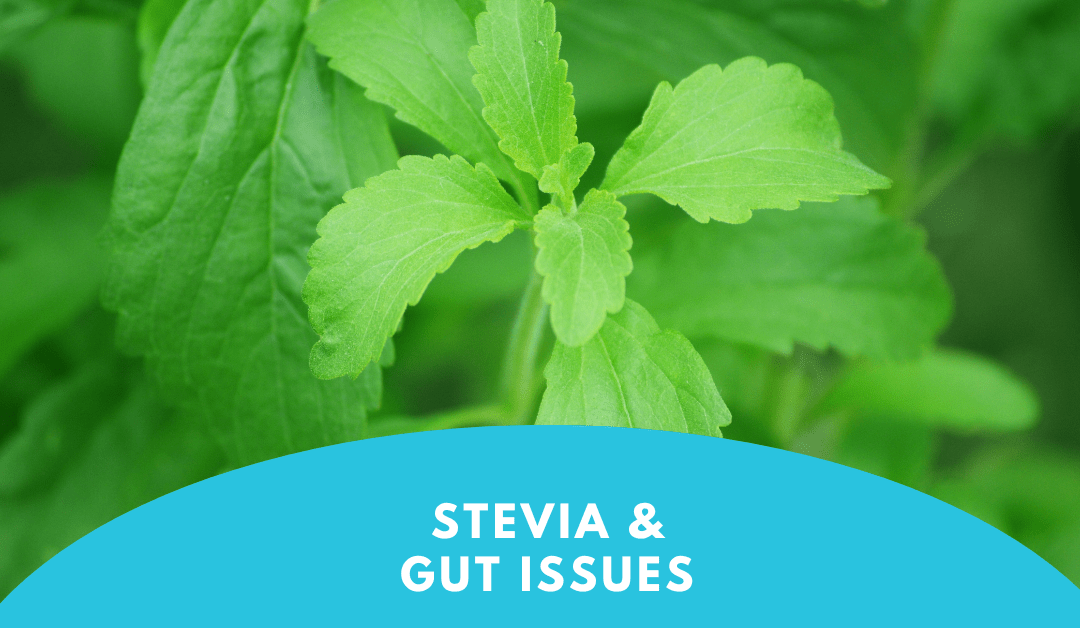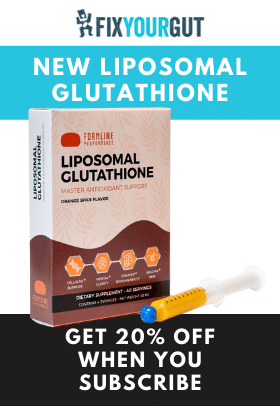Stevia is a popular natural sweetener and sugar substitute. Stevia is derived from the plant Stevia rebaudiana (candyleaf), which grows natively in South America. Stevia has been used for centuries by the Guarani native populations in South America to sweeten beverages or freshly leaves were ingested as a treat. Stevia might be safe to consume in moderation; it is heat-stable and pH-stable. There are some lesser-known issues, however, that some people may have from frequent stevia ingestion.1 2
Possible Issues That May Arrive From Stevia Ingestion
- Due to supposed inadequate toxicological information, the United States Federal Drug Administration (FDA) has not given a Generally Recognized as Safe (GRAS) classification to concentrated stevia or some stevia extracts used in foods or beverages. Some purified stevia extracts, Rebaudioside A (for example, found in Truvia, PureVia, and SweetLeaf [which also contain other ingredients that might be problematic for some people]) are GRAS by the United States FDA. Most of these United States FDA GRAS stevia extract products are produced by large corporations like Cargill, which may have influenced their way into the United States FDA GRAS approval or calling for the United States FDA to only approve their products. Stevia leaf-derived products are approved for use as sweeteners in foods in some countries, including Japan (been approved for decades,) Brazil, Australia, and New Zealand. The following is a link to the watchdog group article from the Center for Science in the Public Interest on possible issues with stevia’s safety, including increased risks of developing cancer or birth defects. Finally, remember stevia was widely used for centuries in South America, which appeared not to have anthropologically known elevated cancer or birth defect rates from its ingestion.3 4 5 6
- Some people suffering from interstitial cystitis have mentioned that stevia aggravates their interstitial cystitis symptoms. Stevia ingestion caused them increased bladder pain, burning, and inflammation.7 8 9
- Stevia ingestion may cause or worsen gastrointestinal symptoms, including gas, bloating, abdominal pain, and diarrhea. Stevia combined with sugar alcohol ingestion is more likely to cause or worsen the above gastrointestinal symptoms for some people. Stevia and its extracts are somewhat fermentable by our gut microbes which might lead to it causing gastrointestinal symptoms.10 11 12
- Stevia ingestion also affects our microbiome and can grow or reduce colonies of various bacteria which can lead to the above-listed gastrointestinal symptoms. A recent meta-study comparing fourteen studies on how stevia ingestion affects the microbiome was released. The results were mixed at best. One study showed that stevia ingestion does increase probiotic bacteria Firmicute Lactobacillus growth, but another study showed that stevia inhibited the growth of six strains of the probiotic Lactobacillus reuteri. So, if you are taking a9 Lactobacillus reuteri probiotic like BioGaia you probably do not want to ingest stevia with it. The studies are mixed if it grows or reduces colonies of the Actinobacteria Bifidobacteria. Stevia ingestion also seems to grow Bacteroides thetaiotaomicron. Stevia ingestion also increases the growth of the probiotic bacteria Akkermansia muciniphila (might be a good idea to ingest some stevia with the Akkermansia containing probiotic Pendulum to help it colonize and/or grow within your digestive tract). Stevia ingestion reduced probiotic colonies of the Firmicute Ruminococcaceae strain UCG 005. Stevia ingestion did reduce the colonies of some opportunistic bacteria, including Staphylococcus aureus, Clostridiales family XIII, and E. coli HB101. However, stevia ingestion did increase the growth of the opportunistic bacteria Enterococcus faecalis colonies in one study.13
- If you are allergic to ragweed pollen, you might have an issue with stevia. If your oral cavity and/or tongue becomes itchy or you have digestive system itching and/or pain when you ingest stevia and are allergic to ragweed pollen, you might also be having a cross-reactivity reaction to stevia, also known as oral allergy syndrome. Sometimes oral allergy syndrome symptoms only occur when the offending pollen is in season where you live. For example, ragweed pollen is usually at its worst during the fall. So you might cross-react to stevia ingestion only during the fall when ragweed pollination is severe.14 15
- Stevia ingestion rarely causes severe allergic reactions, including anaphylaxis. Highly purified stevia extracts might be far less likely to cause allergic reactions.16
Occasional stevia ingestion might be ok, but I probably would not consume multiple food items or beverages with stevia daily, especially if I suffered from gut health issues or gut dysbiosis. If you have ragweed pollen allergies, you probably do not want to ingest stevia in the fall if you live in an area with heavy ragweed pollen. I am allergic to ragweed, and where I live in North Carolina, ragweed pollen is severe in the fall. If I ingest anything with stevia during the fall, the roof of my mouth itches, but it does not, for example, during the spring months. I do occasionally consume food products with stevia in them, but I would not myself daily.
Stevia is far from being one of the worse sugar substitutes to ingest. However, some people might have issues with its ingestion and should avoid ingesting it.
Does Ingesting Stevia Cause You Symptoms?
I’ve helped tens of thousands of people with their diet and gut health. Click here to book a coaching session with me, because it’s worth your time.
- https://www.ncbi.nlm.nih.gov/pmc/articles/PMC4890837 ↩
- https://www.ncbi.nlm.nih.gov/pmc/articles/PMC3103919/ ↩
- https://www.accessdata.fda.gov/cms_ia/importalert_119.html ↩
- https://www.sciencedirect.com/topics/biochemistry-genetics-and-molecular-biology/rebaudioside-a‘ ↩
- https://www.foodnavigator-usa.com/Article/2009/09/02/FDA-has-no-objection-to-GRAS-for-SweetLeaf-stevia# ↩
- https://www.cspinet.org/article/stevia-leaf-extract-rebiana ↩
- https://www.ic-network.com/bev/stevia/ ↩
- https://www.nafc.org/bhealth-blog/bladder-irritants-and-your-diet ↩
- https://www.reddit.com/r/Interstitialcystitis/comments/kfjuvu/does_anyone_else_have_issues_with_stevia/ ↩
- https://thethirty.whowhatwear.com/is-stevia-bad-for-you/slide8 ↩
- https://www.nytimes.com/2018/05/04/well/eat/stevia-sweetener-sugar-side-effects-downsides.html ↩
- https://www.ncbi.nlm.nih.gov/pmc/articles/PMC9028423/ ↩
- https://www.ncbi.nlm.nih.gov/pmc/articles/PMC9028423/ ↩
- https://www.researchgate.net/publication/268883997_Steviol_glycoside_safety_Are_highly_purified_steviol_glycoside_sweeteners_food_allergens ↩
- https://suzycohen.com/articles/stevia-ragweed-connection-explained/ ↩
- https://pubmed.ncbi.nlm.nih.gov/25449199/ ↩






